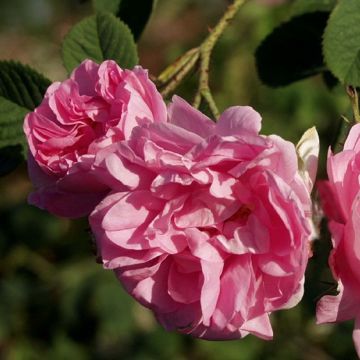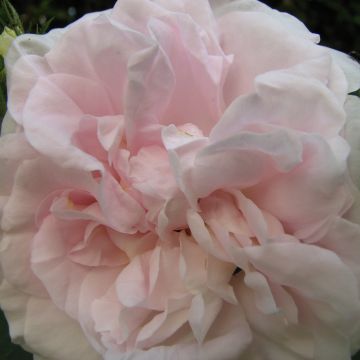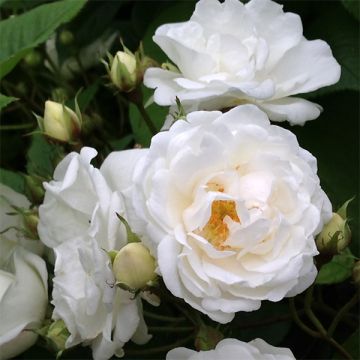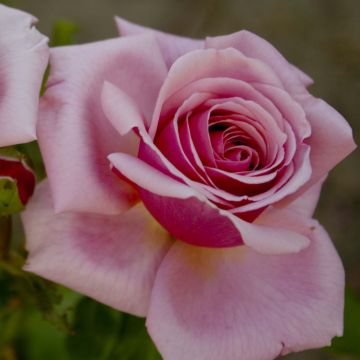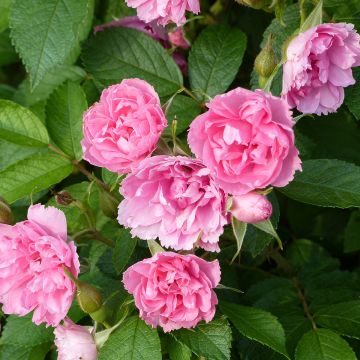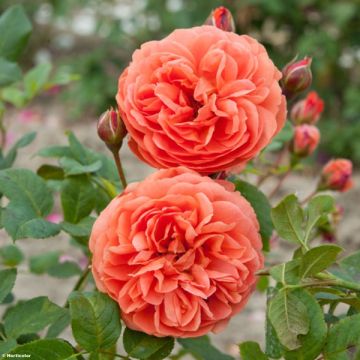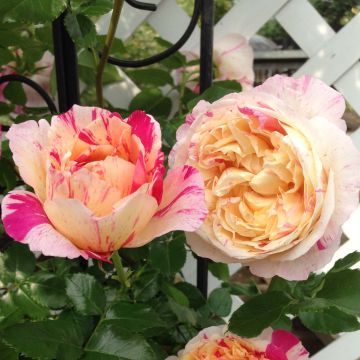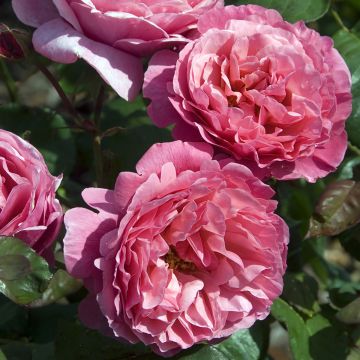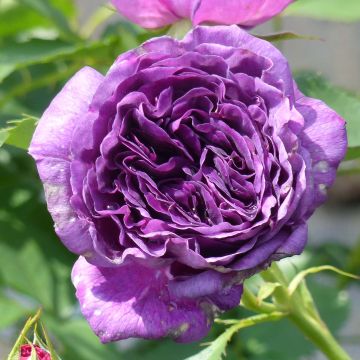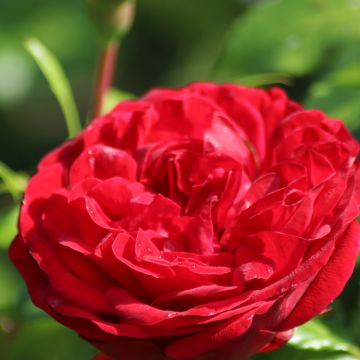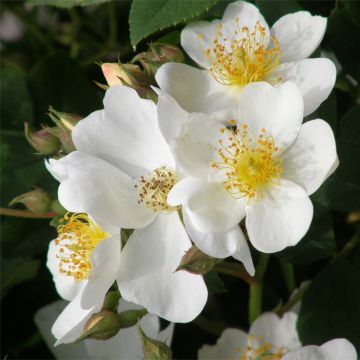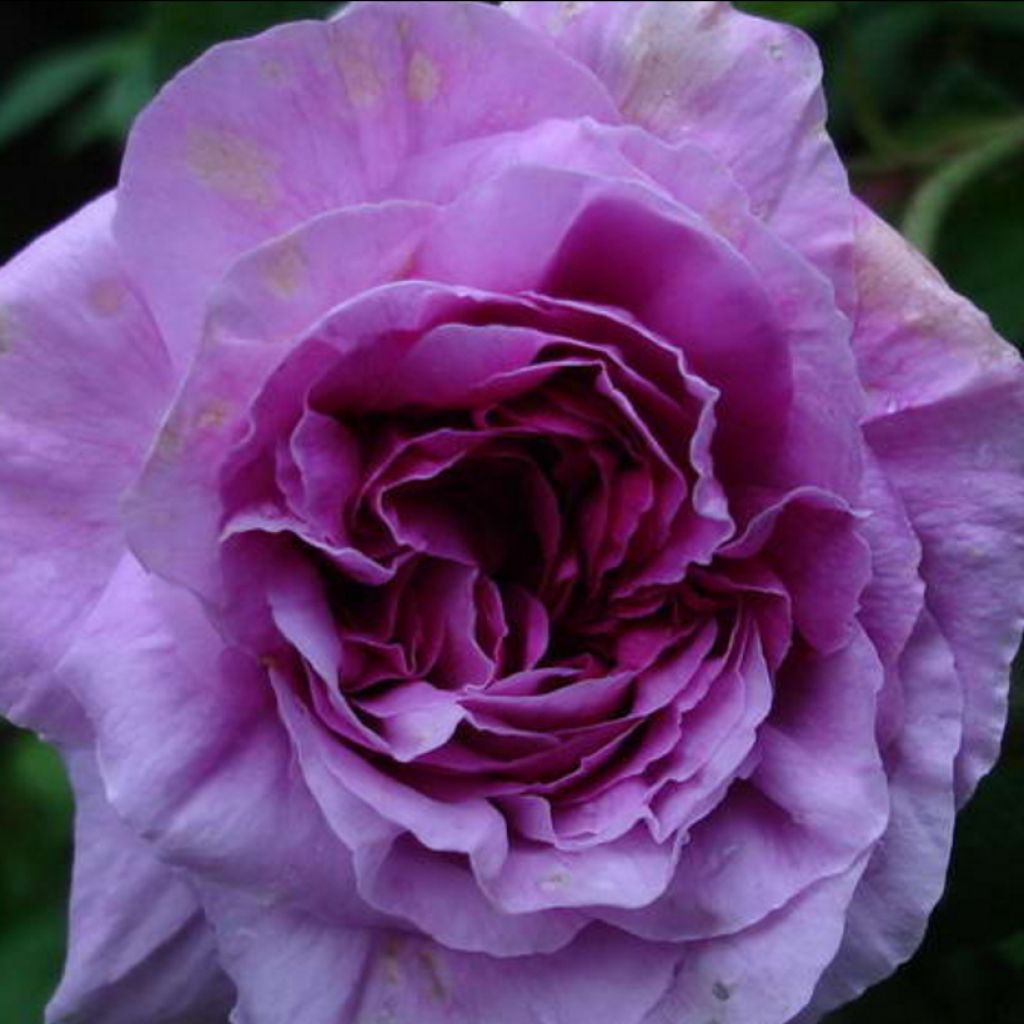

Rosa gallica Jenny Duval - Old Gallic Rose
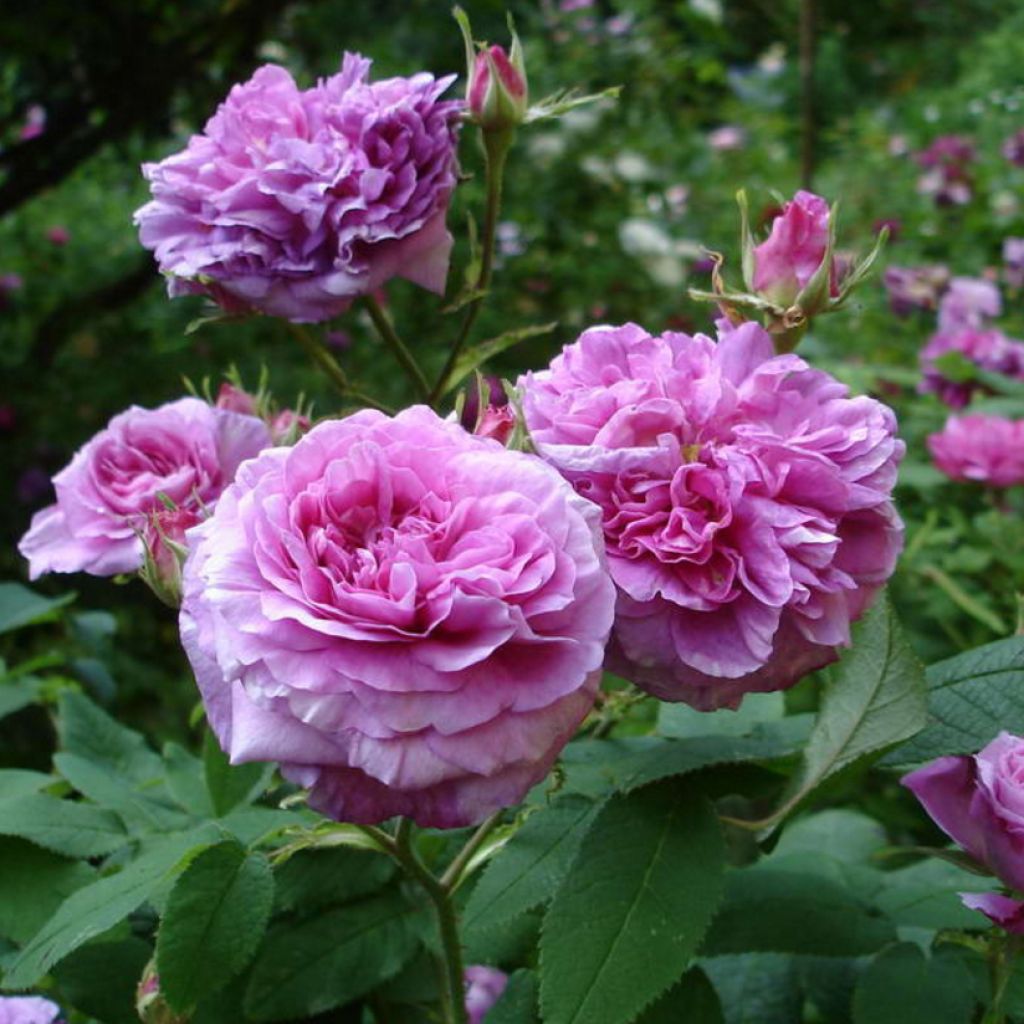

Rosa gallica Jenny Duval - Old Gallic Rose
Rosa gallica Jenny Duval - Old Gallic Rose
Rosa x gallica Jenny Duval
Gallic rose
This item cannot be shipped to the selected country
Delivery charge from €5.90
Delivery charge from €5.90
Delivery to Corse prohibited
More information
Schedule delivery date,
and select date in basket
This plant carries a 24 months recovery warranty
More information
We guarantee the quality of our plants for a full growing cycle, and will replace at our expense any plant that fails to recover under normal climatic and planting conditions.
From €5.90 for pickup delivery and €6.90 for home delivery
Express home delivery from €8.90.
From €5.90 for pickup delivery and €6.90 for home delivery
Express home delivery from €8.90.
Delivery to Corse prohibited: UE law prohibits the import of this plant from mainland France to Corse as part of the fight against Xylella fastidiosa. Please accept our sincere apologies.
More information
Does this plant fit my garden?
Set up your Plantfit profile →
Description
Rose 'Jenny Duval' is an astonishing old-fashioned Gallic rose, remarkable for the morphosis of the colour of its roses over the course of the days. Close to 'Président de Sèze', it forms slightly looser flowers, but nicely double, where light cherry red, magenta pink washed with mauve, and then greyish mauve-blue hues blend at deflowering. A bushy rose with a flexible habit, easy to grow and vigorous, it offers a long scented summer flowering, but does not re-bloom at the end of the season. Gallic roses, very hardy and tolerant of partial shade, are well suited to cool climates.
Rosa x gallica 'Jenny Duval' is an ancient horticultural hybrid of uncertain origin, obtained before 1842. While the name of its breeder remains uncertain, it undoubtedly descends from the botanical rose Rosa gallica officinalis, the French rose or Provins rose, a wild species native to central and southern Europe, western Asia, Turkey, and the Caucasus. All so-called Gallic roses are resistant and undemanding bushes, forming low bushes with good covering vegetation.
'Jenny Duval' forms a very vigorous bush with a flexible habit, reaching about 1m (3 to 4ft) to 1m (3 to 4ft) in height and 1m (3 to 4ft) in width. Its deciduous foliage is carried by flexible and sparsely thorny stems. It adorns itself with a deep, rather greyish green leaves. It blooms abundantly and for several weeks in June-July. From rounded buds with pink-red shades, double flowers, about 6cm (2.4in) wide, open up, tending towards a deep purplish red, more intense in the centre, before blooming into a glazed greyish lilac. Its numerous petals are slightly plicate and organized in quarters. The fragrance of its roses is medium to strong, pleasant, with powdery and peppery notes. This variety is rather demanding and requires some fertilizer inputs. On the other hand, it thrives in cool climates, as it fears scorching sun.
Subsequently neglected for remontant hybrid varieties, Gallic roses are nevertheless sturdy plants full of history. These are bushes like 'Versicolor', 'Jenny Duval', 'Cardinal de Richelieu', or 'Charles de Mills' that stand guard in old abandoned gardens and cemeteries, while many others will have surrendered. Magician of colours, 'Jenny Duval' contributes to the exuberance of summer-flowering shrub borders, landscape hedges, mixed with buddleias, Abelias, or Deutzias. Its vigorous growth allows it to form a beautiful backdrop for perennial borders, where it wonderfully accompanies Phlox paniculata, dame's rocket, or purple toadflax. These qualities make us forget that it only blooms once, which is never reproached to other flowering shrubs. It definitely deserves to be planted in all rose lovers' gardens and scented gardens.
Report an error about the product description
Rosa gallica Jenny Duval - Old Gallic Rose in pictures
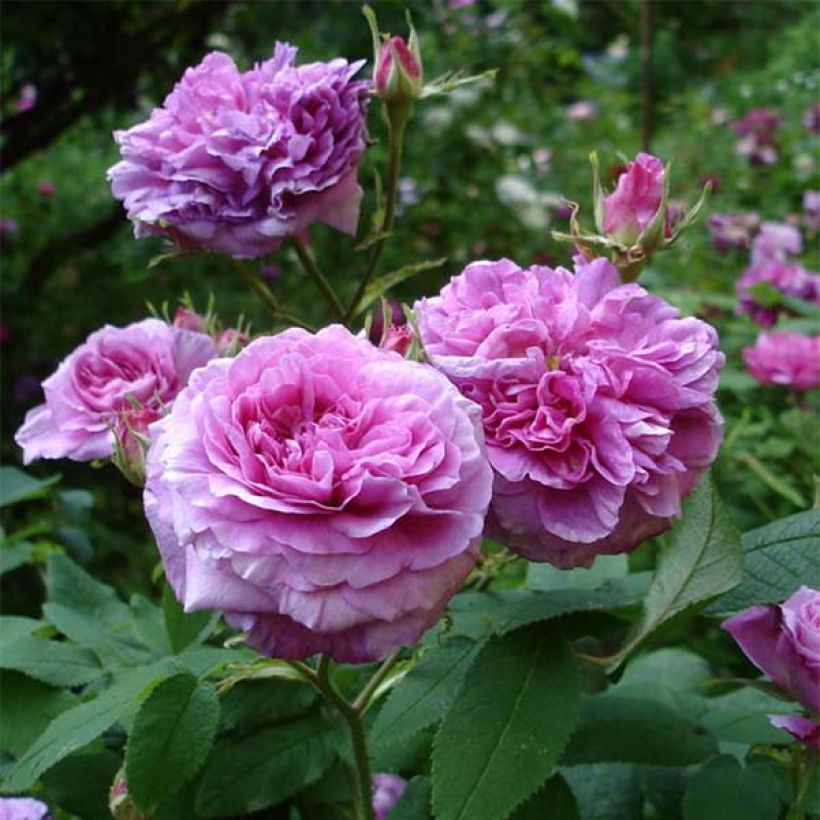

Plant habit
Flowering
Foliage
Botanical data
Rosa
x gallica
Jenny Duval
Rosaceae
Gallic rose
Cultivar or hybrid
Rosa canina Laxa (4L/5L pot, Wrapped bare root)
Other Traditional Roses
Planting and care
Plant your 'Jenny Duval' Rose in a sunny or semi-shady location, as it fears heat and scorching sun. Gallica roses are tolerant but do not appreciate excess limestone. They will adapt to any garden as long as the soil is well worked, not too heavy, and rich enough. To install your rose, work the soil by crumbling it well and putting an amendment at the bottom of the planting hole, such as dried blood or dehydrated horn. Water generously after planting to remove air pockets, and during dry weather for the first two years. Water regularly for a few weeks to facilitate rooting.
Roses are often stained or unsightly in late summer, but this is not a problem for their development. These stains are not harmful to the rose, it is a natural phenomenon.
Planting period
Intended location
Care
-
, onOrder confirmed
Reply from on Promesse de fleurs
Fragrant Roses
Haven't found what you were looking for?
Hardiness is the lowest winter temperature a plant can endure without suffering serious damage or even dying. However, hardiness is affected by location (a sheltered area, such as a patio), protection (winter cover) and soil type (hardiness is improved by well-drained soil).

Photo Sharing Terms & Conditions
In order to encourage gardeners to interact and share their experiences, Promesse de fleurs offers various media enabling content to be uploaded onto its Site - in particular via the ‘Photo sharing’ module.
The User agrees to refrain from:
- Posting any content that is illegal, prejudicial, insulting, racist, inciteful to hatred, revisionist, contrary to public decency, that infringes on privacy or on the privacy rights of third parties, in particular the publicity rights of persons and goods, intellectual property rights, or the right to privacy.
- Submitting content on behalf of a third party;
- Impersonate the identity of a third party and/or publish any personal information about a third party;
In general, the User undertakes to refrain from any unethical behaviour.
All Content (in particular text, comments, files, images, photos, videos, creative works, etc.), which may be subject to property or intellectual property rights, image or other private rights, shall remain the property of the User, subject to the limited rights granted by the terms of the licence granted by Promesse de fleurs as stated below. Users are at liberty to publish or not to publish such Content on the Site, notably via the ‘Photo Sharing’ facility, and accept that this Content shall be made public and freely accessible, notably on the Internet.
Users further acknowledge, undertake to have ,and guarantee that they hold all necessary rights and permissions to publish such material on the Site, in particular with regard to the legislation in force pertaining to any privacy, property, intellectual property, image, or contractual rights, or rights of any other nature. By publishing such Content on the Site, Users acknowledge accepting full liability as publishers of the Content within the meaning of the law, and grant Promesse de fleurs, free of charge, an inclusive, worldwide licence for the said Content for the entire duration of its publication, including all reproduction, representation, up/downloading, displaying, performing, transmission, and storage rights.
Users also grant permission for their name to be linked to the Content and accept that this link may not always be made available.
By engaging in posting material, Users consent to their Content becoming automatically accessible on the Internet, in particular on other sites and/or blogs and/or web pages of the Promesse de fleurs site, including in particular social pages and the Promesse de fleurs catalogue.
Users may secure the removal of entrusted content free of charge by issuing a simple request via our contact form.
The flowering period indicated on our website applies to countries and regions located in USDA zone 8 (France, the United Kingdom, Ireland, the Netherlands, etc.)
It will vary according to where you live:
- In zones 9 to 10 (Italy, Spain, Greece, etc.), flowering will occur about 2 to 4 weeks earlier.
- In zones 6 to 7 (Germany, Poland, Slovenia, and lower mountainous regions), flowering will be delayed by 2 to 3 weeks.
- In zone 5 (Central Europe, Scandinavia), blooming will be delayed by 3 to 5 weeks.
In temperate climates, pruning of spring-flowering shrubs (forsythia, spireas, etc.) should be done just after flowering.
Pruning of summer-flowering shrubs (Indian Lilac, Perovskia, etc.) can be done in winter or spring.
In cold regions as well as with frost-sensitive plants, avoid pruning too early when severe frosts may still occur.
The planting period indicated on our website applies to countries and regions located in USDA zone 8 (France, United Kingdom, Ireland, Netherlands).
It will vary according to where you live:
- In Mediterranean zones (Marseille, Madrid, Milan, etc.), autumn and winter are the best planting periods.
- In continental zones (Strasbourg, Munich, Vienna, etc.), delay planting by 2 to 3 weeks in spring and bring it forward by 2 to 4 weeks in autumn.
- In mountainous regions (the Alps, Pyrenees, Carpathians, etc.), it is best to plant in late spring (May-June) or late summer (August-September).
The harvesting period indicated on our website applies to countries and regions in USDA zone 8 (France, England, Ireland, the Netherlands).
In colder areas (Scandinavia, Poland, Austria...) fruit and vegetable harvests are likely to be delayed by 3-4 weeks.
In warmer areas (Italy, Spain, Greece, etc.), harvesting will probably take place earlier, depending on weather conditions.
The sowing periods indicated on our website apply to countries and regions within USDA Zone 8 (France, UK, Ireland, Netherlands).
In colder areas (Scandinavia, Poland, Austria...), delay any outdoor sowing by 3-4 weeks, or sow under glass.
In warmer climes (Italy, Spain, Greece, etc.), bring outdoor sowing forward by a few weeks.



































